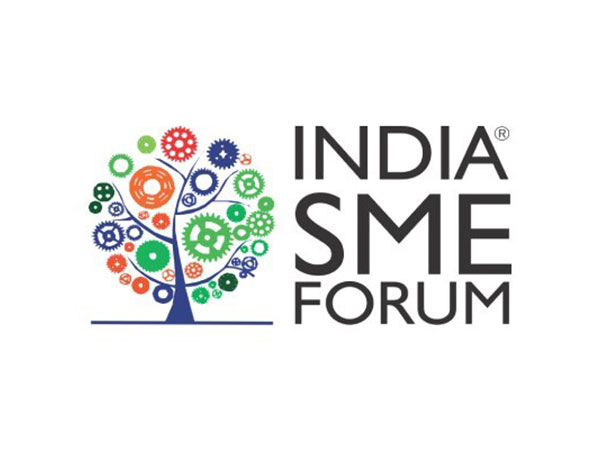New Delhi [India]: The India SME Forum (ISF), the country’s largest non-governmental organization for small and medium enterprises (SMEs), has urged the government to reconsider the timeline for implementing the Invoice Management System (IMS) under the Goods and Services Tax (GST) framework.
Citing significant operational and financial challenges, ISF has called for a phased transition, ensuring that Micro, Small, and Medium Enterprises (MSMEs) can integrate the new system without disruption.
Since its introduction in 2017, GST has played a crucial role in formalizing the Indian economy, enhancing transparency, and streamlining tax compliance. The IMS, introduced as an extension of GST, is designed to eliminate Input Tax Credit (ITC) mismatches through real-time invoice reconciliation. However, the tight monthly compliance window under IMS, especially regarding credit notes, is creating significant concerns for businesses.
Industry Concerns Over IMS Rollout
Vinod Kumar, President of the India SME Forum, acknowledged the government’s intent to use technology for tax compliance but emphasized the challenges MSMEs face in adapting to IMS.
“MSMEs appreciate the government’s commitment towards leveraging technology for tax compliance. While the objective of IMS is well-intended, the rapid rollout has left MSMEs struggling with infrastructure limitations, inadequate software readiness, and compliance hurdles. The businesses are looking at an additional expense of Rs. 1.5 Lakhs per annum to ensure they are compliant. Hence, a reasonable transition period is critical to align their processes, to ensure that compliance measures do not inadvertently hinder the growth of small businesses.”
Challenges Faced by MSMEs
According to industry estimates:
- Over 75% of MSMEs face difficulties adapting to digital tax compliance.
- 95% of small businesses feel they need more time and resources to integrate IMS.
- Many MSMEs lack advanced digital infrastructure and dedicated tax teams, making compliance burdensome.
The key challenges raised by ISF include:
🔹 Limited Preparation Time: The GST Network (GSTN) announced the IMS rollout on September 3, 2024, with an implementation date of October 1, 2024, leaving businesses little time to upgrade systems and train personnel.
🔹 Technical Delays: Key API functionalities for invoice reconciliation were only made available in mid-October, delaying integration efforts. Additionally, the supplier-side dashboards, crucial for tracking Input Tax Credit (ITC) claims, were only enabled on November 13, 2024.
🔹 Operational Disruptions: Many MSMEs rely on basic accounting tools, making it difficult to transition suddenly. The absence of bulk upload utilities and offline reconciliation tools adds further complications.
🔹 Immediate Credit Note Action: IMS mandates that credit notes must be accepted or rejected immediately, with no option to defer for supplier reconciliation. This could lead to unexpected financial burdens due to increased tax liabilities and interest payments.
🔹 Transaction Volume Constraints: The GST portal limits supplier view and downloads to 500 documents at a time, creating inefficiencies for businesses handling high transaction volumes. Many MSMEs may be forced to subscribe to GST Suvidha Providers (GSPs) to manage compliance.
India SME Forum’s Recommendations
To address these challenges, ISF has suggested a phased IMS implementation, similar to the gradual rollout of e-invoicing. The key recommendations include:
✔ Six-to-Twelve-Month Transition Period: Allow MSMEs more time to integrate IMS without financial or operational distress.
✔ Improved Supplier-Side Visibility: Faster API rollouts and a supplier dashboard that enables bulk document retrieval and reconciliation.
✔ Flexibility in Handling Disputed Invoices: Businesses should be allowed to keep disputed invoices in abeyance instead of being forced into immediate tax liability.
✔ Engagement with Industry Stakeholders: The government must consult industry experts to refine implementation strategies.
About India SME Forum
The India SME Forum (ISF) is the country’s largest MSME organization, with:
- 98,200+ paid MSME members, including 9,400+ women entrepreneurs
- 12,36,000+ MSME subscribers across 19 State Chapters
Over the past nine years, ISF has conducted nationwide programs to support innovative and disruptive SMEs. The organization aims to empower MSMEs by providing a platform for partnerships, investments, and growth opportunities.
With the IMS rollout deadline fast approaching, industry stakeholders are hopeful that the government will reconsider the implementation timeline, ensuring a smooth transition for MSMEs without jeopardizing their operations.


